Azure DevOps vs GitHub: Which DevOps Tool Should You Choose?
In this article, we’ll compare two popular platforms that offer DevOps solutions: Azure DevOps and GitHub. We’ll highlight their core features, strengths, and weaknesses, and provide some guidance on how to decide which one is best suited for your organization.
Why DevOps?
DevOps is a set of practices that aims to improve the collaboration and efficiency of software development and IT operations teams. It enables faster delivery of value to customers, higher quality software, and the building of more reliable and secure systems. DevOps also fosters a culture of continuous learning and improvement, where teams can experiment, learn from failures, and adapt to changing requirements and feedback.
One of the key aspects of DevOps is supporting the business through the various phases of the software development lifecycle, such as planning, coding, testing, deploying, and monitoring.
DevOps has become more and more popular for public cloud environment deployments, not only allowing for application workload lifecycle management, but also embracing infrastructure as code as well as configuration as code. DevOps brings together developer teams (working on applications) and ops teams (working on infrastructure). It embraces the full cycle, from baseline compute resource deployment, and configuration of the platform, to the release of the applications running on top.
While the adoption of DevOps grew because of the cloud world, it’s possible to stretch the concepts across hybrid environments or pure on-premises data centers as well. Thanks to DevOps, organizations are able to provide faster software releases, delivering faster bug fixes, releasing new features and capabilities — no matter where the underlying infrastructure is running, or what platform architecture is being used, such as virtual machines, platform as a service, or containerized workloads such as Kubernetes.
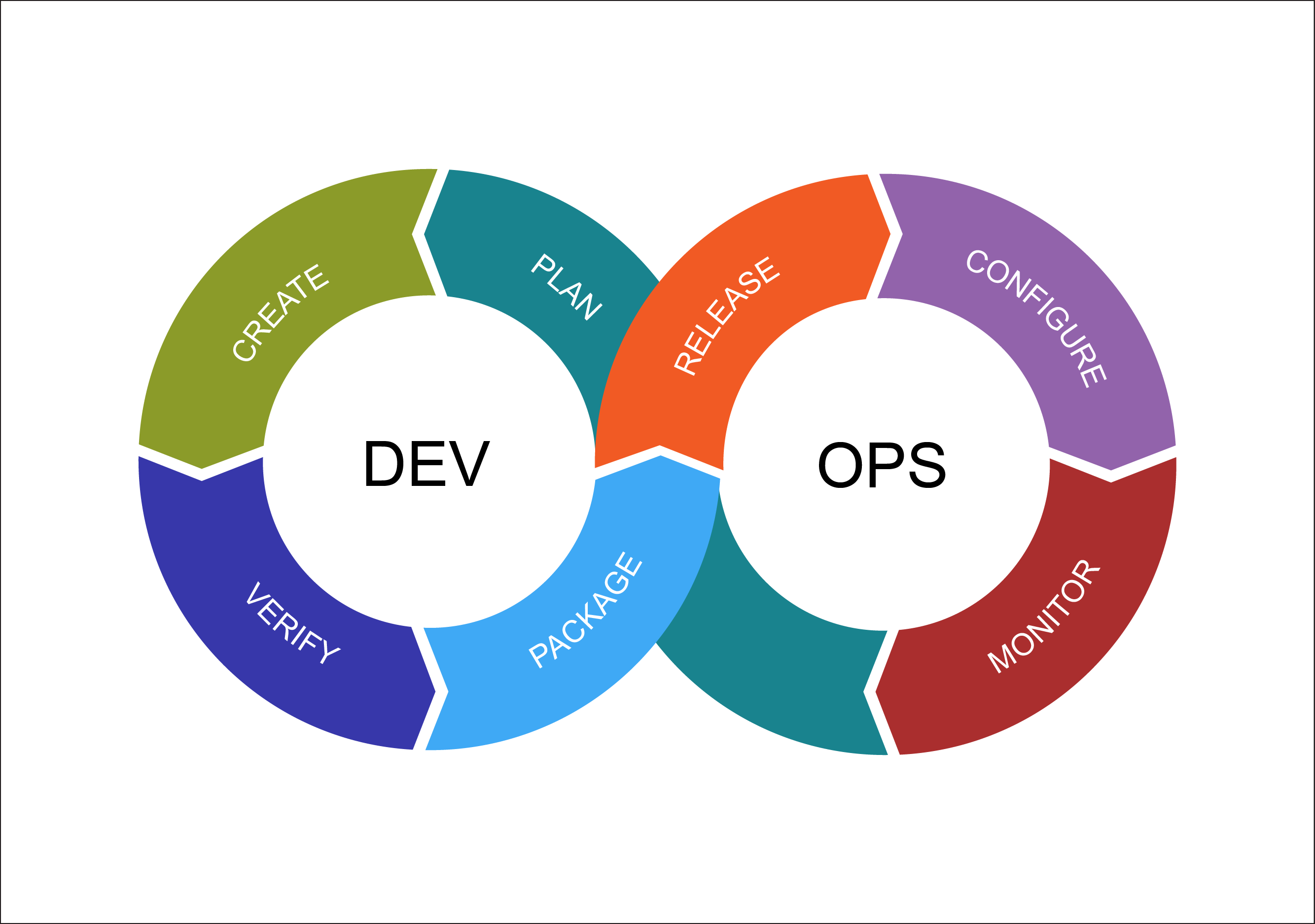
DevOps Tools
Once an organization decides to integrate DevOps, the next decision to make is which DevOps tools to use. These tools help automate and streamline the workflows, reduce errors and bottlenecks, and provide visibility and feedback to the teams. However, choosing the right tools for your DevOps needs can be challenging, as there are many options available in the market.
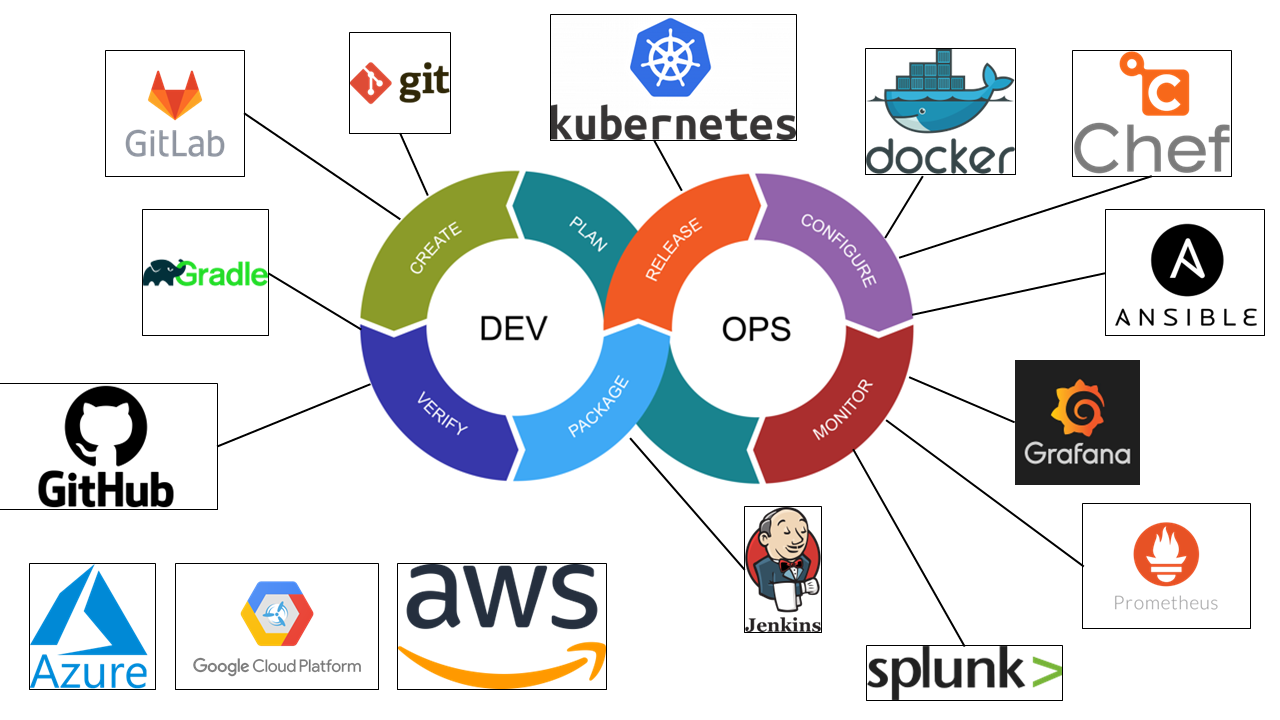
In the sections below, we’ll compare Azure DevOps and GitHub. While both products are owned by Microsoft (Microsoft acquired GitHub in 2018), they’re seen as two stand-alone products — even though there’s actually quite a lot of possible integration between them as well.
Azure DevOps
Azure DevOps is a cloud-based platform that provides a set of services and tools for DevOps teams. It includes:
- Azure Boards: a project management tool that allows you to track work items, such as user stories, tasks, bugs, and features. You can use agile methods like Scrum or Kanban, create custom workflows and dashboards, and integrate with other tools like GitHub or Jira.
- Azure Repos: a version control system that supports Git and Team Foundation Version Control (TFVC). You can host your code repositories in the cloud or on-premises, manage branches and pull requests, and enforce policies and permissions.
- Azure Pipelines: a continuous integration and continuous delivery (CI/CD) tool that allows you to build, test, and deploy your code to any platform or cloud. You can use predefined templates or create your own pipelines using YAML or a graphical editor. You can also integrate with other tools like Jenkins or SonarQube.
- Azure Test Plans: a testing tool that allows you to plan, execute, and track manual and automated tests. You can create test cases and suites, run tests across different browsers and devices, and generate reports and insights.
- Azure Artifacts: a package management tool that allows you to create, host, and share packages with your team or with the public. You can use various package formats like NuGet, npm, Maven, or Python.
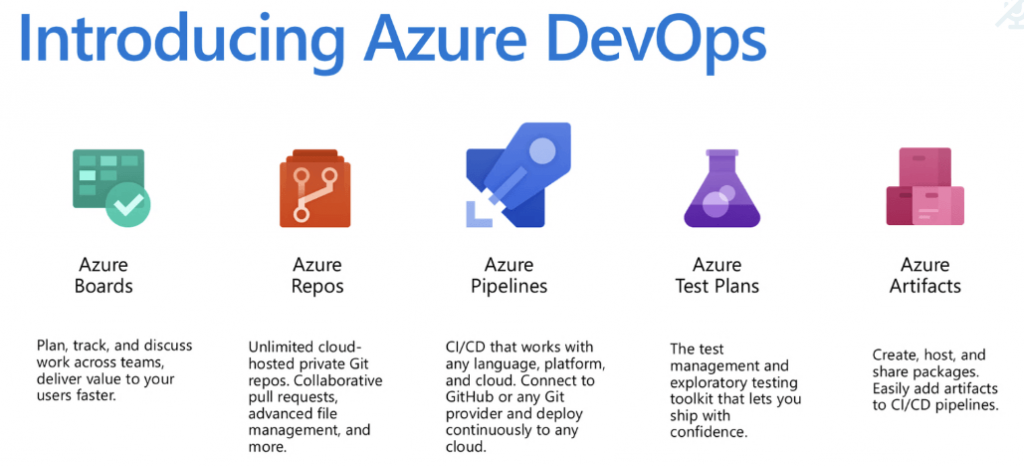
Benefits of Azure DevOps
- It offers a comprehensive and integrated solution for all your DevOps needs. You can access all the services from a single portal and use a common identity and security model, backed by Microsoft Azure Active Directory (now Microsoft Entra ID).
- It integrates seamlessly with other Azure services and Microsoft products like Visual Studio, Office 365, or Power BI. You can also leverage the Azure ecosystem of partners and extensions to enhance your DevOps capabilities using the Visual Studio Marketplace.
- It supports hybrid and multi-cloud scenarios. You can deploy your code to Azure or to other clouds like Amazon AWS or Google Cloud Platform. You can also use Azure DevOps Server to run some or all of the services on-premises.
- It provides scalability and reliability. You can scale up or down your resources as needed and pay only for what you use. You can also rely on the high availability and security of Azure.
Downsides of Azure DevOps
- It can be overwhelming and complex for beginners or small teams. You may not need all the features or services that Azure DevOps offers, or you may prefer simpler or more specialized tools for some tasks.
- It can be expensive for large teams or projects. The pricing model of Azure DevOps is based on the number of users, pipelines, agents, storage space, etc. You may end up paying more than you would with other platforms or tools.
- It can be less flexible or customizable than other platforms or tools. You may not be able to use some features or integrations that are available elsewhere, or you may have to follow some conventions or limitations imposed by Azure DevOps.
GitHub
GitHub is a web-based platform that provides hosting for software development using Git version control. It also offers various features and tools for collaboration and automation. It includes:
- GitHub Repositories: a version control system that allows you to host your code repositories online. You can manage branches and pull requests, review code changes, enforce policies and permissions, and integrate with other tools like Azure DevOps or Slack.
- GitHub Actions: a continuous integration and continuous delivery (CI/CD) tool that allows you to automate your workflows using YAML files. You can build, test, and deploy your code to any platform or cloud. You can also use predefined workflows or create your own actions using Docker containers.
- GitHub Packages: a package management tool that allows you to create, host, and share packages with your team or with the public. You can use various package formats like npm, RubyGems, Docker, or NuGet.
- GitHub Pages: a static site hosting service that allows you to publish web pages directly from your GitHub repositories. You can use Jekyll, a static site generator, or any HTML, CSS, or JavaScript files. You can also use a custom domain name for your site.
- GitHub Discussions: a community forum that allows you to start and join conversations with other GitHub users. You can ask questions, share ideas, provide feedback, or seek help on various topics related to your projects or GitHub features.
- GitHub Code Scanning: a code analysis tool that allows you to find and fix security vulnerabilities and code quality issues in your code. You can use CodeQL, a powerful query language, or other tools like ESLint or Bandit to scan your code and generate alerts.
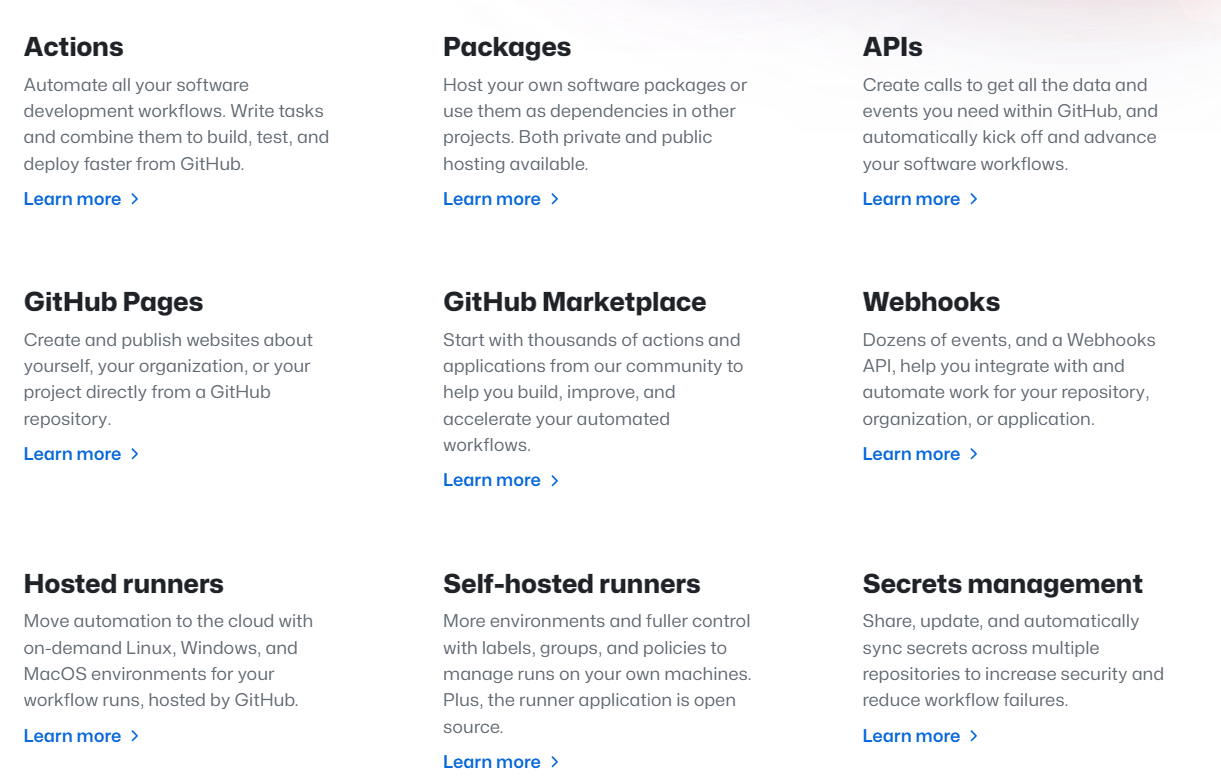
Benefits of using GitHub
- It’s the most popular and widely used platform for hosting and collaborating on code. You can access millions of open-source projects and contributors, learn from best practices and examples, and contribute to the community.
- It’s simple and easy to use for beginners and small teams. You can get started quickly with a free account and a basic Git workflow. You can also use GitHub Desktop, a graphical user interface, or GitHub CLI, a command-line tool, to interact with GitHub.
- It’s flexible and customizable for advanced users and large teams. You can use GitHub Enterprise, a self-hosted version of GitHub, to run it on your own servers or cloud. You can also use GitHub Apps, a framework for building integrations, or GitHub API, a programmatic interface, to extend and automate GitHub functionality.
- It’s innovative and constantly evolving. You can benefit from the latest features and improvements that GitHub releases regularly. You can also participate in beta testing or provide feedback on new ideas and experiments.
Downsides of using GitHub
- It’s mainly focused on Git version control and code hosting. You may need to use other platforms or tools for some DevOps tasks like project management, testing, or monitoring.
- It’s dependent on the availability and performance of GitHub. You may experience downtime or slowdowns due to maintenance, outages, or incidents. You may also have to comply with the terms of service and privacy policy of GitHub.
- It’s limited by the pricing model and quotas of GitHub. The free plan has some restrictions on the number of collaborators, private repositories, actions minutes, and storage space. The paid plans are based on the number of seats, which may not reflect the actual usage or value of GitHub.
How to Choose between Azure DevOps and GitHub
Azure DevOps and GitHub are both powerful platforms that offer DevOps solutions for software development teams. However, they’re not identical, and they have some significant differences that may affect your choice. In this section, we’ll explore some of the main factors you should consider when comparing and contrasting Azure DevOps and GitHub, and provide some tips on how to make an informed decision.
Scope and integration
One of the first things to consider is the scope and integration of the platforms. Azure DevOps is a comprehensive and integrated solution that covers all your DevOps needs, from planning to monitoring. It also integrates seamlessly with other Azure services and Microsoft products, such as Visual Studio, Office 365, or Power BI. This means that you can access all the features and services from a single portal, use a common identity and security model, and leverage the Azure ecosystem of partners and extensions.
GitHub, on the other hand, is mainly focused on Git version control and code hosting. It does offer some additional features and tools, such as GitHub Actions, GitHub Packages, or GitHub Pages, but they’re not as extensive or integrated as Azure DevOps. You may need to use other platforms or tools for some DevOps tasks, such as project management, testing, or monitoring. You can also integrate GitHub with other tools and services, such as Azure DevOps, Slack, or Jenkins, but you may have to deal with multiple interfaces, identities, and security models.
Therefore, if you’re looking for a complete and cohesive solution that works well with other Azure services and Microsoft products, you may prefer Azure DevOps. If you’re looking for a simple and focused solution that works well with Git version control and code hosting, you may prefer GitHub.
Simplicity and complexity
Another factor to consider is the simplicity and complexity of the platforms. GitHub is simple and easy to use for beginners and small teams. You can get started quickly with a free account and a basic Git workflow. You can also use GitHub Desktop or GitHub CLI to interact with GitHub from your desktop or terminal. GitHub has a user-friendly interface and a clear documentation that guides you through the features and tools.
Azure DevOps is more complex and overwhelming for beginners and small teams. You may not need all the features or services that Azure DevOps offers, or you may prefer simpler or more specialized tools for some tasks. Azure DevOps has a more cluttered interface and a less intuitive documentation that may confuse you or make you miss some important details.
Therefore, if you’re looking for a simple and easy solution that doesn’t require much learning or configuration, you may prefer GitHub. If you’re looking for a complex and comprehensive solution that offers more functionality and customization, you may prefer Azure DevOps.
Flexibility and customization
Another factor to consider is the flexibility and customization of the platforms. GitHub is flexible and customizable for advanced users and large teams. You can use GitHub Enterprise, a self-hosted version of GitHub, to run it on your own servers or cloud. You can also use GitHub Apps, a framework for building integrations, or GitHub API, a programmatic interface, to extend and automate GitHub functionality. You can also create and share your own actions, packages, or pages with your team or with the public.
Azure DevOps is less flexible or customizable than GitHub. You may not be able to use some features or integrations that are available elsewhere, or you may have to follow some conventions or limitations imposed by Azure DevOps. You can use Azure DevOps Server to run some or all of the services on-premises, but it may not have all the features or updates of the cloud version. You can also use REST API or PowerShell scripts to interact with Azure DevOps, but they may not be as powerful or user-friendly as GitHub Apps or API.
Therefore, if you’re looking for a flexible and customizable solution that allows you to mix and match different features and tools according to your needs and preferences, you may prefer GitHub.
If you’re looking for a less flexible or customizable solution that follows a more standardized and consistent approach, you may prefer Azure DevOps.
Pricing and value
Another factor to consider is the pricing and value of the platforms.
GitHub has a free plan that offers unlimited public repositories, unlimited collaborators, unlimited actions minutes, and 500 MB of storage space. It also has paid plans that offer unlimited private repositories, more actions minutes, more storage space, and additional features like code scanning, discussions, or enterprise accounts. The paid plans are based on the number of seats, which means that you pay per user per month.
For more details, check out this page on GitHub pricing.
Azure DevOps has a free plan that offers unlimited public projects, five free users, one free parallel job, and 2 GB of storage space. It also has paid plans that offer unlimited private projects, more users, more parallel jobs, more storage space, and additional features like test plans, artifacts, or self-hosted agents. The paid plans are based on the number of users, pipelines, agents, storage space, and so on, which means that you pay per resource per month.
For more details, check this page on Azure DevOps pricing.
So, if you’re looking for a free or low-cost solution that offers unlimited public repositories and collaborators, you may prefer GitHub. If you’re looking for a more expensive but more comprehensive solution that offers unlimited private projects and more features and services, you may prefer Azure DevOps.
What About Integrating Azure DevOps and GitHub?
As mentioned earlier, both products are owned by Microsoft, and they have some common features like version control, CI/CD, and package management. However, they also have some unique features that may complement each other, such as project management, testing, or community forums.
Here are some examples of how you can integrate Azure DevOps and GitHub to leverage the best of both worlds:
-
You can connect your Azure Boards project to your GitHub repositories, and link your work items to your GitHub commits, pull requests, and issues. This way, you can use GitHub for software development, while using Azure Boards to plan and track your work. You can also add status badges of Azure Boards to your GitHub repository README file, and view the linked work items in the Release summary page of Azure DevOps.
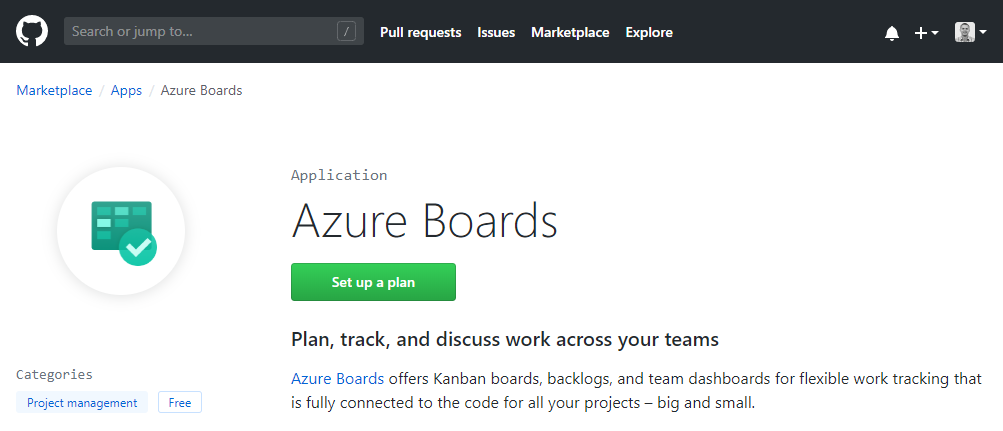
Using Azure Boards from within GitHub -
You can use Azure Pipelines to automatically build, test, package, release, and deploy your GitHub repository code. You can use predefined templates or create your own pipelines using YAML or a graphical editor. You can also integrate with other tools like Jenkins or SonarQube.
-
You can create a GitHub Release from Azure Pipelines, and publish your artifacts to GitHub Packages. This way, you can use Azure Pipelines for CI/CD, while using GitHub for package management and distribution. You can also use GitHub Actions to trigger workflows based on events in Azure DevOps.
-
You can sign in to Azure DevOps using your GitHub credentials, and invite your GitHub collaborators to your Azure DevOps project. This way, you can simplify the authentication and authorization process, and collaborate with your team members across both platforms.
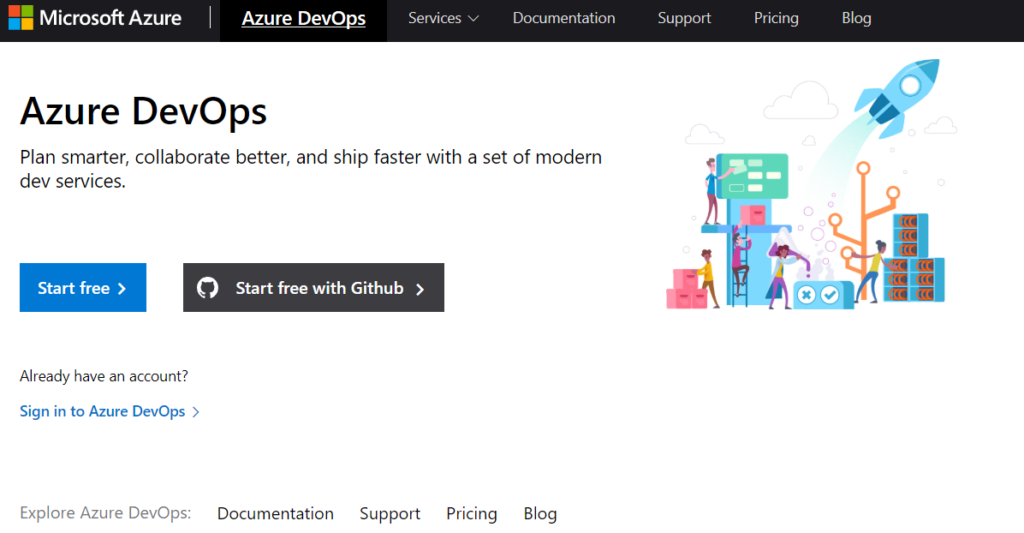
Using GitHub credentials to authenticate to Azure DevOps
Summary
Azure DevOps and GitHub are both powerful platforms that offer DevOps solutions for software development teams. They have some common features like version control, CI/CD, and package management, but they also have some significant differences that may affect your choice.
The choice between Azure DevOps and GitHub depends on various factors such as your team size, project complexity, budget, preferences, and requirements. There’s no one-size-fits-all answer, as each platform has its own pros and cons. As discussed, it would also be perfectly okay to use both Azure DevOps and GitHub together.
By integrating Azure DevOps and GitHub, you can benefit from the comprehensive and integrated features of Azure DevOps, as well as the simple and easy features of GitHub. You can also enjoy the seamless integration with other Azure services and Microsoft products, as well as the connection with the open-source community. You can also optimize your costs by using the free or low-cost plans of both platforms.
Therefore, choosing between Azure DevOps and GitHub isn’t a binary decision. You can use both platforms together to enhance your DevOps capabilities and deliver value to your customers faster, better, and safer.
Since you’re interested in DevOps, and while you’re here, check out our library of Cloud and DevOps learning resources.
Also check out our article DevOps by Example: Tools, Pros and Cons of a DevOps Culture for a nice introduction to DevOps.
FAQs on Azure DevOps vs GitHub
Azure DevOps is a set of development tools and services by Microsoft for managing the entire application development lifecycle. GitHub is a web-based platform for version control and collaboration that focuses on code hosting and sharing.
Azure DevOps is more comprehensive, covering the entire application development process, including project management, CI/CD, testing, and deployment. GitHub is primarily a version control and code collaboration platform.
Both platforms offer robust version control features. GitHub is particularly well-known for its Git-based version control system, while Azure DevOps offers Git as one of its version control options, along with Team Foundation Version Control (TFVC).
Yes, many developers use both in tandem. You can store your source code on GitHub and integrate it with Azure DevOps for CI/CD pipelines, project management, and other development activities.
